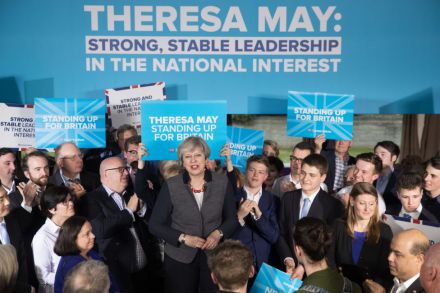2017 Conservative Manifesto: full text
The Conservative Manifesto 2017: Our Plan for a Stronger Britain and a Prosperous Future The next five years are the most challenging that Britain has faced in my lifetime. Brexit will define us: our place in the world, our economic security and our future prosperity. So now more than ever, Britain needs a strong and stable government to get the best Brexit deal for our country and its people. Now more than ever, Britain needs strong and stable leadership to make the most of the opportunities Brexit brings for hardworking families. Now more than ever, Britain needs a clear plan. This manifesto, Forward, Together: Our Plan for a Stronger




















